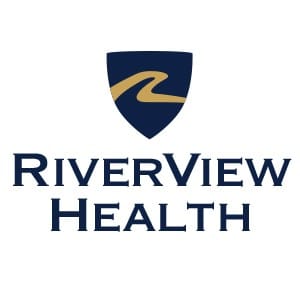Mental health disorders and substance use disorders (SUDs) often occur together. That’s why RiverView Recovery Center (RRC) is working to support those with co-occurring disorders.
Co-occurring disorders mean that an individual has a diagnosis of a mental health disorder (e.g., depression, anxiety, and other mental health disorders) along with a SUD (e.g., alcohol, drugs, or other addictive substances). When the conditions occur together, the effects of each can be amplified.
According to a 2022 National Survey on Drug Use and Health by the Substance Abuse and Mental Health Services Administration, approximately 21.5 million adults in the United States have a co-occurring disorder.

East Grand Forks Adds Services, Moves
In May, RiverView Recovery Center-East Grand Forks was the first RRC location to receive its co-occurring disorder licensure by the State of Minnesota, allowing for treatment. Co-occurring disorder treatment includes treatment for the mental health disorder and the substance use disorder at the same time.
According to RRC Mental Health Practitioner Matthew Cookman, LADC, LAC, the process for co-occurring licensure is also in the works for RRC locations in Crookston, Thief River Falls, and Roseau. Licensure is expected by the end of the year.
Cookman, who has a Master of Arts in Counseling from the University of North Dakota and is under supervision for his licensed professional counselor licensure, oversees training and credentialing for RRC’s co-occurring program.
“Often, addiction and mental health concerns go hand in hand,” he shared. “As a person works on gaining sobriety, there are often mental health situations that show up. Or, sometimes, they have always been there, but the substances were suppressing symptoms. So, when the substance use is not happening, the mental health situation presents itself again.
“The benefit then is the opportunity for people with co-occurring disorders to work on both the substance use disorder and the mental health disorder simultaneously. This can be helpful if done in one location to reduce the stress of having to share their stories multiple times with different providers, which can lead to someone reliving trauma over and over again.”
With the new licensure, RRC-East Grand Forks now offers mental health assessments. Plans are also in place to establish a mental health-specific group, which Cookman says will greatly help some of the population RiverView Recovery serves.
Coincidentally, the new services in East Grand Forks come with an address change. RRC-East Grand Forks is now housed under the same roof as RiverView Clinic-East Grand Forks at 1428 Central Avenue Northeast.
A Combined Effort
With Cookman’s focus on RRC-East Grand Forks and weekly visits to RRC-Thief River Falls, the footprint for the new level of care is growing, reported RRC Director Curtis Hamre.
Hamre also credits Tim Denney, MS, principal trainer and consultant at Level 5 Services, as a great asset in moving forward with co-occurring disorder services. Denney travels to all RRC sites and speaks about mental health issues.
RRC team members are continuously training and learning more about changing addictive behaviors and gaining a deeper understanding of disorders such as mood and personality and how all factors can relate to SUD, Hamre stated.
Co-occurring Risk Factors, Treatment
Certain risk factors can contribute to both substance use disorders and mental health disorders, including –
Genetics: Both sets of disorders can run in families. Research shows many genes may contribute to the risk of developing either condition.
Environmental factors: Stress and trauma can be passed down through generations. These can contribute to the development of substance use or mental health disorders.
Sometimes, it’s hard to tell which disorder came first.
Substance use disorders may contribute to mental health disorders. Alcohol, drugs, and other substances can trigger changes in the brain’s structure and function, making it more likely to develop a mental health disorder.
Mental health disorders can contribute to substance use disorders. If you have a mental health disorder, you may self-medicate with alcohol or drugs to try to feel better or cope. Although these substances may temporarily help symptoms, they can worsen them over time. Mental health disorders may also change how the brain’s “reward” centers work, adding to the likelihood of becoming addicted.
Through RRC’s services, clients learn how each disorder affects the other and which treatment will be most effective.
For more information on services and contact information at each RRC location, go to https://www.riverviewhealth.org/services/chemical-dependency/.
Tags:


